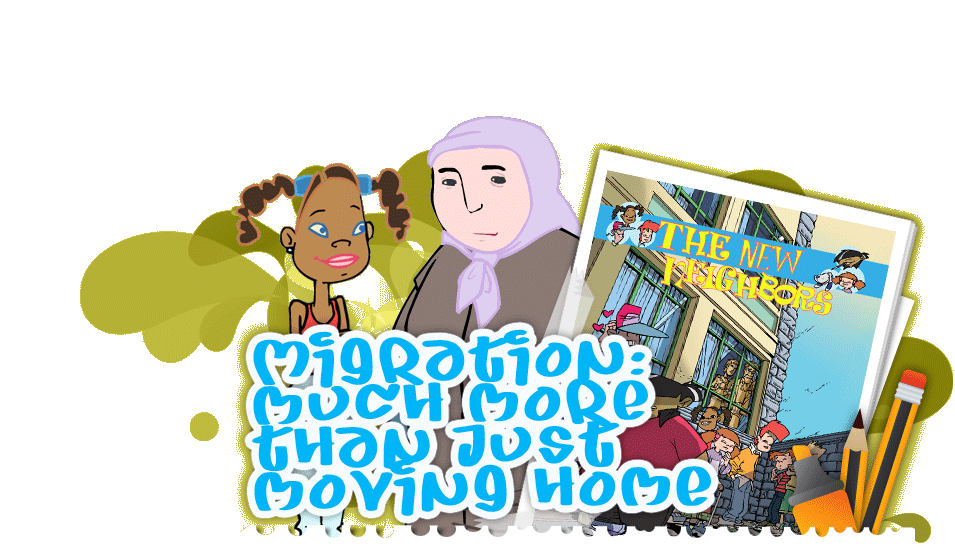 |
|
 |
 Human mobility is nothing new. Indeed, one of most ancient of human characteristics is our nomadic nature. People have always migrated, above all in search of better living conditions. This is no different today. Understanding this process is the first step to appreciating how our societies have been changing and how migratory movements can give rise to a more enriching community experience. |


 Activity 0 – Classroom BlogThroughout the Educational Sequences different activities will be proposed for working on the subject of interculturalism. The documents, videos, comics, etc. that are created will be posted on the classroom blog. For this reason, before starting any of the activities, it is important to set up the blog. First you will need to decide which platform you want to use to create the bog. Two of the most popular ones are Blogger and Wordpress. Each has its own characteristics, but either of them will be useful for posting your entries. WHERE DO OUR NEW NEIGHBOURS COME FROM?We are going to analyse migrations throughout history and the reasons why people migrate. But first of all we are going to look at an example of this kind of situation which could relate to any of our own neighbourhoods. To learn about this story, read the first 22 pages of the comic-book “Our New Neighbours” and answer the following questions in groups of 4-5 students:
MIGRATION: A HISTORICAL PHENOMENON.Migration is not a modern phenomenon. The history of humanity can be understood from these migratory dynamics: huge migrations of entire peoples, family migrations, individual migrations… what would the world be like today if nobody had moved from Africa, which according to scientists is the origin of humanity as we know it today? Would it be depopulated? We’re going to look back in time and reconstruct the history of human migration since prehistory. For this task you need to divide into groups of 4-5 students and create a timeline that shows the major migratory landmarks throughout history. In the Resources section you will find the tool for creating this timeline as well as links to take you to the necessary information.
CURRENT REASONS FOR MIGRATINGJust as they always have been, migrations are an active feature of our own epoch. The reasons that each person has for embarking on an adventure whose outcome is impossible to foretell are also diverse. Can you imagine leaving the place you live now to go and live in an unknown country? Why do so many people take this decision? We’re going to investigate the main reasons. Form groups of 4-5 people and choose a group of reasons from those given below. The information you’ll find in the Resources section will help to give you a better understanding of the different reasons for emigrating:
With this information you should create a poster that clearly illustrates the circumstances of the reasons you have chosen. To illustrate the posters you can find images on Flickr (look for photos that have a creative commons licence). Post the posters on the classroom blog.
MY PERSONAL VIEWOn your own, write an entry for the blog of around 200 words summing up everything you have learnt and giving your own opinion on migration now you have studied this phenomenon.
|


 MIGRATION: A HISTORICAL PHENOMENONCURRENT REASONS FOR MIGRATINGGeneral
Armed conflict
Environmental disasters
Socioeconomic reasons
Political reasons (religious, ideological or political persecution)
|


 The following work should be evaluated:
The evaluation should take the following factors into account:
|
